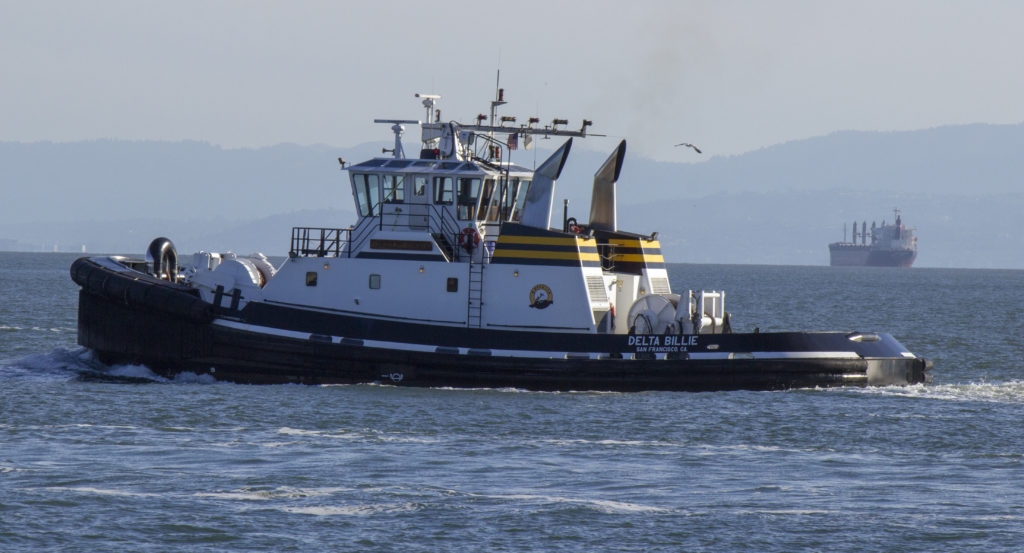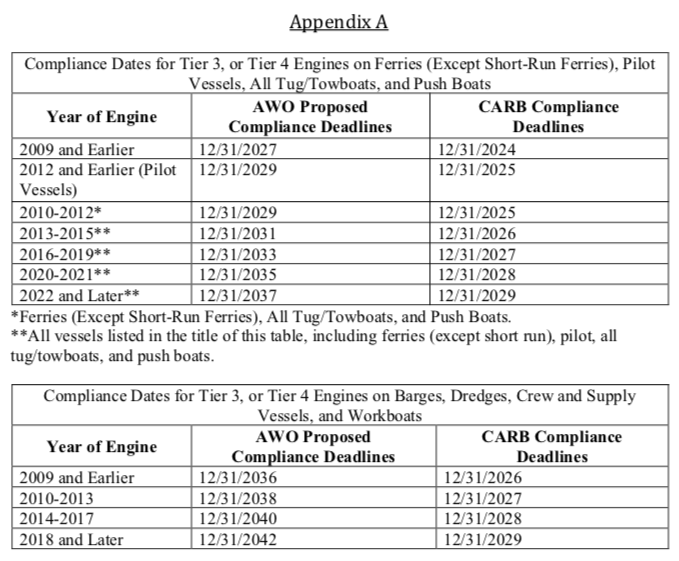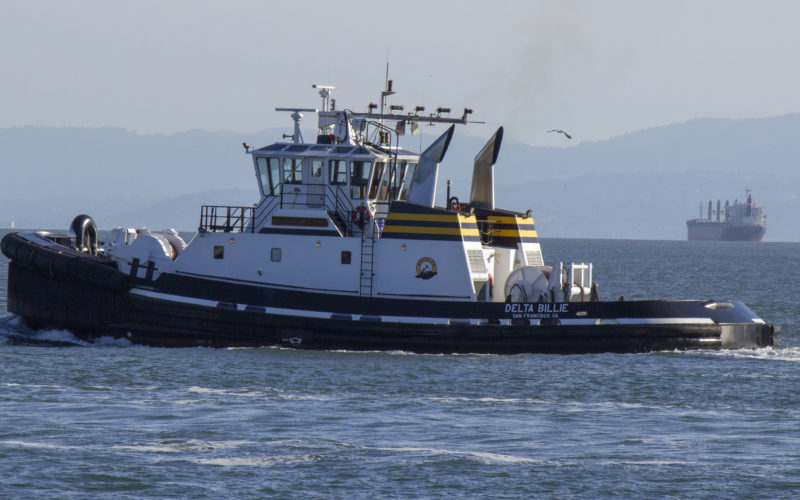(ARLINGTON, Va.) — In a Feb. 22 letter, Jennifer Carpenter, president and CEO of the American Waterways Operators (AWO), asked California Gov. Gavin Newsom to delay deadlines or enforcement of the California Air Resources Board (CARB) commercial harbor craft rule due to safety issues and lack of the EPA-required authorization.
Carpenter pointed out that technical experts have not approved diesel particulate filters (DPFs) for safe use in towing vessels and that CARB has failed to take into consideration the repeated concerns maritime and labor organizations have expressed about DPFs.
The text of Carpenter’s letter follows:
“I am writing to you with an urgent request for your leadership to direct the California Air Resources Board (CARB) to delay further enforcement of the commercial harbor craft (CHC) emissions rule. In my Aug. 21, 2023 letter, I explained the serious threats to human life, the environment, California’s offshore wind development, and the national supply chain posed by this rule. The U.S. Coast Guard (USCG) has also warned CARB that this mandate poses a “safety issue.” Unfortunately, these concerns elicited no response, which has created a regulatory trap and dangerous game of supply chain chicken as harbor craft operators are forced to weigh the unfortunate choice between noncompliance or abandoning California ports.
“On behalf of the American Waterways Operators (AWO) and California tugboat operators, and the more than 50,000 Californians whose livelihoods depend on the domestic maritime industry, I appeal to you once again to take immediate action to protect California’s harbor craft operators and coastal communities from untested and dangerous technology, and I urge you to rein in a state agency that is acting without necessary federal authorization.
“AWO is the tugboat, towboat, and barge industry’s advocate, resource, and united voice for safe, sustainable, and efficient transportation on America’s waterways, oceans, and coasts. Our industry safely and efficiently moves over 665 million tons of cargo each year while emitting 43 percent less greenhouse gases than rail and 832 percent less than trucks. The maritime industry is the most sustainable form of freight transportation in the nation. AWO member companies are committed to improving environmental performance, including placing the world’s first hybrid tugboat into service in California and developing the nation’s first zero-emissions ship-assist vessel for operation in state waters. While the intent of the CHC rule is fully consistent with our industry’s commitment to build a greener future, it is important to move forward in a way that protects the over 50,000 California jobs and more than $12.2 billion in economic activity driven by the domestic maritime transportation industry.

“As of the date of this letter, CARB has not received authorization from the U.S. Environmental Protection Agency (EPA) pursuant to Section 209(e) of the Clean Air Act (CAA) to enforce this regulation. However, CARB has made it clear that it intends to continue to enforce the CHC rule deadlines without EPA authorization. This ill-advised position should be reconsidered not only for legal reasons, but also to protect mariner safety, the environment, and the California supply chain.
“The technical experts on which the USCG relies have not approved diesel particulate filters (DPFs) for safe use in towing vessels, and CARB has failed to take into consideration the repeated concerns about DPFs expressed by maritime and labor organizations. We are deeply concerned that CARB plans to require compliance with a regulation that would put vessels out of compliance with federal safety standards and place mariners and waterways at risk.
“There is precedent for delaying deadlines or enforcement due to safety issues or a lack of required federal authorization. CARB’s truck and bus regulation, which was the first to require vehicles to repower to the lowest emitting engines available and install DPFs, was quickly amended to extend compliance deadlines after the safety and feasibility of the technology mandates were called into question by several horrific truck fires. CARB also recently announced a delay in enforcement of the advanced clean fleets rule because the EPA has not yet approved its requested CAA Section 209(e) waiver.
“In the case of the CHC rule, towing vessel owners are 10 months away from the first major deadline, which is unrealistic when such drastic retrofits are needed to comply. In fact, should the necessary technology become commercially available, it will likely take more than a year to perform the required design and safety studies before bids can be solicited, materials procured, dry docks scheduled, and work completed. As there are only five dry docks in California that have the capacity to do retrofit work, and factoring in procurement delays due to supply chain interruptions, AWO estimates that, at a minimum, an additional 18 months will be needed. This assumes, of course, that a vessel owner has the approximately $5 million needed to retrofit each vessel.
“While we understand that there is a process to request compliance extensions in the CHC rule, this mechanism is more of a burden than a benefit. This is because vessel owners must perform and submit, at their own expense, engineering analyses to prove to CARB that every technology commercially available is incompatible with their vessel. Even then, there is no guarantee that CARB will approve an extension request. This process places the burdens of cost, proof, and uncertainty on the vessel owner when the technologies are already known not to be certified for towing vessels and when CARB has yet to be authorized by EPA to enforce the compliance deadline for which the owner is requesting an extension.
“AWO and our member companies have acted in good faith throughout the regulatory process, continue to engage with CARB staff to attempt to create a more feasible pathway for compliance, and are fully willing to lean into innovation. However, we cannot fast-track the development and approval of new technologies. The CHC rule deadlines should be extended to allow technology to catch up with the rulemaking and give vessel owners a more reasonable amount of time to plan for compliance, and CARB should delay enforcement until it receives CAA Section 209(e) authorization from the EPA.
“Time is of the essence. If you do not act swiftly, towing vessel operators will be faced with the unfair decision between risking noncompliance with the CHC rule or taking their vessels out of service in California. We respectfully ask for the opportunity to work directly with your office to achieve the common goals under the rule but to do so in a manner that follows federal law, does not risk another supply chain crisis, and does not compromise the safety of the mariners who make California ports work.”


